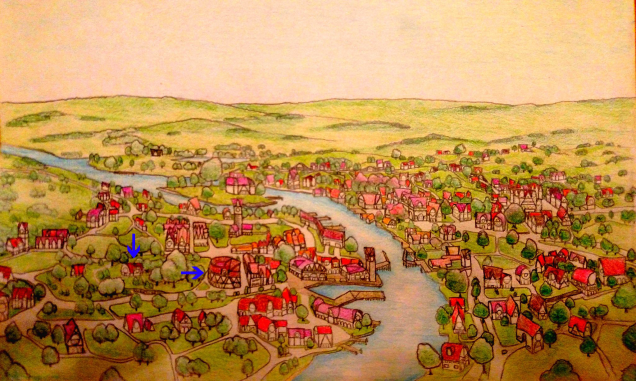Don’t worry, I mean “taken for a ride” in the literal sense (i.e. in a car) rather than in the figurative sense of “having been cheated or deceived.” In fact, far from being cheated, the senior citizens I’m going to tell you about have been provided a wonderful service, and it’s thanks in part to their local libraries.
As I’ve mentioned before, I’m always on the lookout for library programs and services that don’t necessarily have to do with books or even occur inside the library building. I happened upon the New York Library Association‘s eBulletin and this article about the WestSide Express Transportation Service, a volunteer ride-sharing program that’s offered to senior citizens in two communities in Rochester New York.

How WestSide Express works is that seniors may call to request one ride per week to medical or dental appointments, the bank, the pharmacy, an attorney’s office, government agencies, a senior center, or the library. Dispatchers match seniors with volunteer drivers who then provide the rides needed, free of charge.
What’s really cool about this program, other than that it exists in the first place, is how involved the local public libraries – the Chili Public Library and the Gates Public Library – have been in its creation and maintenance. To be sure, the libraries aren’t doing it alone. They’re working in partnership with local entities such as Lifespan, the Chili Senior Center, Gates Recreation, Dunn Tower Apartments, and a whole host of community churches. But the libraries are playing an important role in helping local senior citizens improve the quality of their lives by facilitating access to transportation in this way.

Beyond the original article, I learned a lot about WestSide Express from Jennifer Freese, Assistant Director of the Chili Public Library. She’s been with the project since the initial discussions began in 2014 in response to the challenge of “seniors being unable to find reliable transportation,” through the official launch in 2015, to what the program has become today. I was very interested to learn about the skills and competencies that she felt a librarian would need to be involved in a project like this. Among them were “effectively running meetings, compromise, delegation, making brochures, invitations [and other promotional material], and reporting” both to Lifespan (the program’s parent organization) and to the library director. Because I hope someday to be a credentialed, innovative librarian, I’m always curious about the proficiencies I should be developing and honing now as a student.
I was also happy to find that this project reinforced what I learned in my IST 613 class on library planning, marketing, and assessment. The people behind WestSide Express got to know their community and identified a specific need. They developed a mission statement and a plan to realize that mission. They successfully market their service in locations where the intended audience is likely to see it. And they conduct an annual assessment to evaluate the success of the program and make refinements as needed.
In short, WestSide Express is an excellent example of libraries thinking outside their own buildings, assessing community needs, and meeting patrons where they are.
OK, now that I’ve shared my example, it’s your turn. Do you know of a library that is doing something similar? What innovative programs or services have you heard about that go above and beyond what people expect from a library? Please share your thoughts in the comments below.




